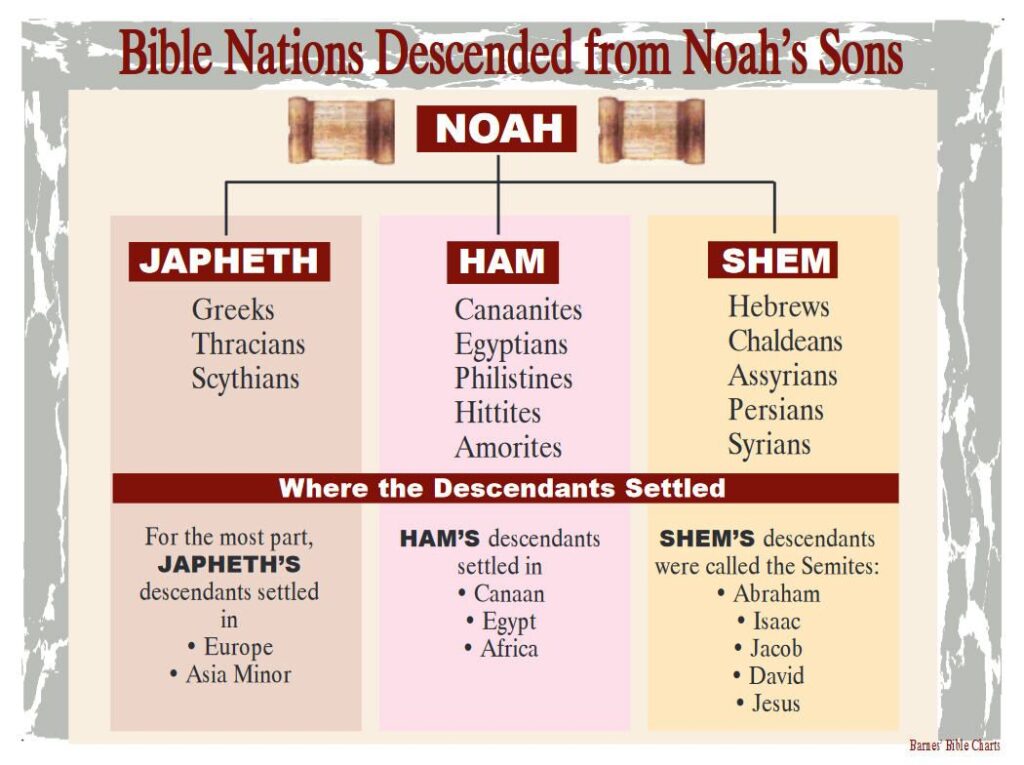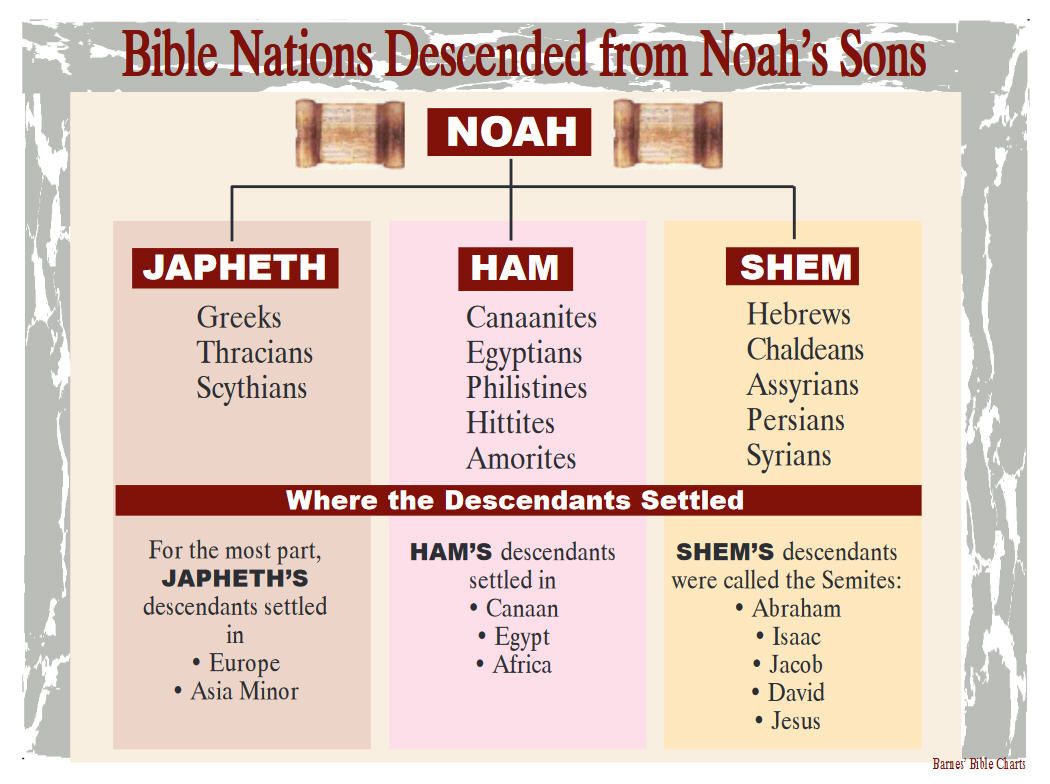
Sons of the Bible: Exploring Lineage, Legacy, and Lessons
The Bible, a cornerstone of faith for billions, is replete with narratives of families, relationships, and the transmission of legacies. Among these stories, the accounts of the sons of the Bible are particularly compelling. They offer insights into ancient societal structures, moral lessons, and the complex dynamics of familial bonds. This article delves into the lives of some prominent sons of the Bible, exploring their roles, their impact on biblical history, and the enduring lessons their stories provide.
The First Sons: Cain and Abel
The story of Cain and Abel, the sons of Adam and Eve, is perhaps one of the most well-known in the Bible. As the first brothers, their narrative explores themes of jealousy, sacrifice, and the consequences of sin. Cain, the elder, was a farmer, while Abel was a shepherd. When God favored Abel’s offering over Cain’s, Cain’s jealousy led him to murder his brother. This act of fratricide is a stark reminder of the destructive power of envy and the importance of righteous behavior. The story serves as a cautionary tale and introduces the concept of original sin’s impact on humanity. [See also: Understanding Original Sin in Theology]
Lessons from Cain and Abel
- The dangers of unchecked jealousy and anger.
- The importance of offering one’s best to God.
- The consequences of sin and disobedience.
The Sons of Noah: Shem, Ham, and Japheth
Noah and his sons, Shem, Ham, and Japheth, are central figures in the narrative of the Great Flood. After the flood subsided, these sons of the Bible repopulated the earth. Their descendants are traditionally seen as the ancestors of different nations and peoples. Shem is often associated with the Semitic peoples, including the Israelites; Ham with various African nations; and Japheth with the Indo-European populations. The story of Noah’s sons highlights the theme of God’s covenant with humanity and the renewal of life after destruction.
The Curse of Ham: A Misunderstood Narrative
The story of Ham’s transgression and Noah’s subsequent curse on Ham’s son, Canaan, has been subject to much interpretation and, unfortunately, misinterpretation. Some have used this passage to justify racism and slavery, a gross distortion of the text’s original intent. A more accurate understanding of the narrative focuses on the consequences of disrespect and the importance of honoring one’s parents. It’s crucial to interpret biblical passages within their historical and cultural context, avoiding harmful and discriminatory applications. [See also: Biblical Interpretations and Social Justice]
Isaac and Ishmael: The Sons of Abraham
Abraham’s two sons, Isaac and Ishmael, represent a significant divergence in biblical history. Ishmael was born to Hagar, Abraham’s servant, while Isaac was born to Sarah, Abraham’s wife, in their old age. God promised Abraham that his descendants through Isaac would inherit the land of Canaan and establish a great nation. This promise is central to the Abrahamic covenant and the lineage of the Israelites. Ishmael, on the other hand, is considered the ancestor of the Arab peoples. The story of Isaac and Ishmael highlights themes of divine promise, faith, and the complexities of family relationships. The rivalry between the mothers and the differing destinies of the sons set the stage for future conflicts.
The Significance of Isaac’s Sacrifice
The near-sacrifice of Isaac is a pivotal event in the Bible. God commanded Abraham to offer Isaac as a burnt offering. Abraham’s willingness to obey this command demonstrated his unwavering faith and obedience to God. At the last moment, God intervened and provided a ram as a substitute sacrifice. This story is often interpreted as a foreshadowing of the ultimate sacrifice of Jesus Christ for the sins of humanity. It also underscores the importance of trusting in God’s plan, even when it seems incomprehensible. The legacy of Isaac, one of the key sons of the Bible, is deeply tied to this moment.
Jacob’s Sons: The Twelve Tribes of Israel
Jacob, later renamed Israel, had twelve sons who became the founders of the twelve tribes of Israel. These sons – Reuben, Simeon, Levi, Judah, Dan, Naphtali, Gad, Asher, Issachar, Zebulun, Joseph, and Benjamin – played a crucial role in shaping the history of the Israelite nation. The stories of these sons are filled with rivalry, betrayal, reconciliation, and divine providence. The most well-known is perhaps the story of Joseph, who was sold into slavery by his brothers but eventually rose to power in Egypt. [See also: The History of Ancient Israel]
Joseph’s Story: From Slavery to Power
Joseph’s story is a testament to God’s ability to work through adversity and to use even the most challenging circumstances for good. After being sold into slavery, Joseph endured hardship and injustice. However, through his faithfulness and God-given abilities, he rose through the ranks and eventually became second-in-command to the Pharaoh of Egypt. Joseph’s wisdom and foresight saved Egypt from famine and ultimately led to the reconciliation with his brothers. His story emphasizes the importance of forgiveness, perseverance, and trusting in God’s plan.
David’s Sons: Absalom and Solomon
King David, one of the most prominent figures in the Old Testament, had many sons, but Absalom and Solomon are particularly noteworthy. Absalom is known for his rebellion against his father, a tragic tale of ambition and betrayal. His story serves as a warning against the dangers of pride and the consequences of challenging divinely appointed authority. Solomon, on the other hand, succeeded David as king and is renowned for his wisdom and the construction of the First Temple in Jerusalem. His reign marked a golden age for Israel, characterized by peace, prosperity, and religious devotion. The contrasting stories of these two sons highlight the complexities of leadership and the importance of character.
The Wisdom of Solomon
Solomon’s wisdom is legendary. He is credited with writing the books of Proverbs, Ecclesiastes, and Song of Solomon. His wisdom was sought by rulers from distant lands, and his judgments were renowned for their fairness and insight. However, Solomon’s story also serves as a cautionary tale. His many wives, who worshipped foreign gods, led him astray and ultimately contributed to the decline of his kingdom. This highlights the importance of remaining faithful to God and avoiding the temptations of worldly pleasures. The legacy of Solomon, one of the influential sons of the Bible, is complex and multifaceted.
The Prodigal Son: A Parable of Forgiveness
The Parable of the Prodigal Son, found in the Gospel of Luke, is a powerful illustration of God’s unconditional love and forgiveness. The story tells of a son who squandered his inheritance and returned home in disgrace. His father, rather than rebuking him, welcomed him with open arms and celebrated his return. This parable teaches us that God is always willing to forgive those who repent and turn back to Him. It also challenges us to extend that same forgiveness to others, regardless of their past mistakes. This parable highlights the themes of repentance, forgiveness, and redemption, central to Christian theology. The prodigal son, though a fictional character, represents every individual who has strayed from God’s path and seeks reconciliation. [See also: Understanding Forgiveness in Christianity]
Conclusion: Lessons from the Sons of the Bible
The stories of the sons of the Bible offer valuable lessons about faith, family, and the human condition. From the tragic tale of Cain and Abel to the inspiring story of Joseph and the profound parable of the Prodigal Son, these narratives provide insights into ancient societal structures, moral principles, and the complex dynamics of familial relationships. By studying these stories, we can gain a deeper understanding of the biblical message and apply its timeless truths to our own lives. The sons of the Bible remind us of the importance of righteousness, forgiveness, and unwavering faith in God. Their legacies continue to resonate today, shaping our understanding of morality, spirituality, and the enduring power of family. Understanding the lives and choices of these sons allows for a richer appreciation of the Bible’s teachings. The narratives of these influential sons of the Bible provide a window into the complexities of human nature and the enduring relevance of biblical principles. The varied experiences of these biblical sons offer profound insights into the human condition, the importance of faith, and the complexities of family relationships. Considering the actions and consequences faced by these sons of the Bible can lead to a deeper understanding of moral and spiritual principles. These sons each contributed, in their own way, to the unfolding narrative of the Bible, leaving a lasting impact on religious thought and practice. Ultimately, the stories of these sons of the Bible serve as both warnings and inspirations, guiding us towards a more meaningful and purposeful life.

